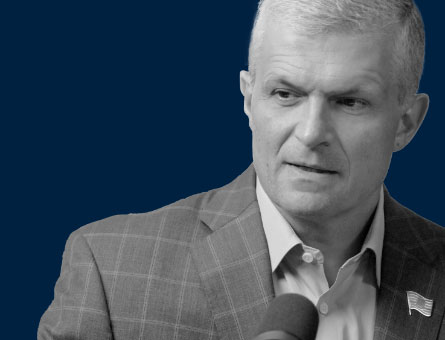Published November 5, 2023 | 5 min read
Key Points
- Despite healthy transaction levels and IPO volumes, 2023’s activity sits far below average levels. And whilst there is anticipation of an uptick, uncertainties must be navigated, and businesses must continue to adapt to changing market conditions.
- A backlog caused by a pause in public markets, alongside high amounts of dry powder means IPO volumes are expected to continue to rise. This is bolstered by a general increase in the size and quality of companies going to market.
- Geopolitical tensions combined with an incoming election year will cause disruption to the markets and M&A activity. How quickly can the economy bounce back from these external events?
- CEO confidence is a pivotal factor in influencing dynamics and currently the mood is one of cautious optimism. Most CEOs fear a recession, but are confident in their ability to navigate its pitfalls successfully.
M&A conditions in 2023
Vito Sperduto: We always knew the first half of the year would be slow but we were expecting more of an uptick in the second half; bringing it in line with 2022 levels in terms of M&A transaction volume. We have seen an increase in the most recent quarter. It was up 36% versus last year. But it is still not at the levels we need it to be.
John Kolz: IPO volumes are nearly triple what they were last year. The broad market in equity issuance is up 20% this year. This sounds like very healthy levels. But that is off a decade-low base. So, despite being up 20%, we're still way below average.
Going public: IPOs and market dynamics
Kolz: We are at a 10-year plus high in terms of the amount of dry powder sitting with private equity. This should support eventual IPO volumes — and certainly M&A along the way. There’s a long backlog of companies in private equity that are debating the right time to hit the public markets.
Larry Grafstein: Given the high volume of private company activity leading up to this pause in the public markets, pent-up demand levels will be very large.
Kolz: If you get to a scale with an asset right now, there's no alternative to an IPO. If it's not going to go a strategic sale, at some point there’s really not a private equity bid that likely works. On the other hand, the demand from the IPO investors, demand at a price that is interesting to a seller, has really not found an equilibrium yet.
There is probably a bigger pent-up supply of higher quality, larger, more profitable companies than there has been in a long time. The days of an unprofitable, fast-growing company hitting the marketplace are over. Companies coming to market today are much bigger and are in much better shape overall. Looking across the last five or six years, we've had three of the six biggest market cap companies become public this year.
“Given the high volume of private company activity leading up to this pause in the public markets, pent-up demand levels will be very large.”
Larry Grafstein, Deputy Chairman, Global Investment Banking, RBC
Wars and elections: the influence of external factors
Sperduto: As we think on the geopolitical front right now, the Israeli/Hamas conflict is having some meaningful and lasting impact on populations in the Middle East and across the globe. And it's not just simply about how it's hitting our markets.
Grafstein: The risk of exogenous shocks is more of a concern today than its been in a long time. And that is clearly beyond anyone's control. We’re also headed into an election year and politics can create a lot of volatility in the market.
Kolz: Yes, if we didn't have enough things to contend with, we throw a presidential election into it, and as we all know, that seems to start earlier and earlier every cycle. The rhetoric and the polarization, we're already seeing it, and it is likely to crescendo further.
The data would show you something that is a little bit more optimistic. Over the last dozen or so election years, all but two actually demonstrate positive S&P returns.
As we think on the geopolitical front right now, what's going on in the Israeli/Hamas conflict, is having some meaningful and lasting impact on populations in the Middle East and across the globe. It's not just simply about how it's hitting our markets.”
Vito Sperduto, Co-Head, Global M&A, RBC
CEO Confidence
Sperduto: CEO confidence will continue to have an impact on M&A transaction decisions and the ability to do equity financings as well. I think there's still an expectation there will be some form of a U.S. recession. But at the same time, three-quarters of executives we surveyed also expect that it's going to be something they will be able to handle quickly.
Kolz: For the earlier part of 2023, many of the CEOs that we talked to said, “even if I could go public, I don't think I'm quite ready yet.” I see some CEOs realize that they need a little bit more time. And that view starts at the macro level.
We lived through a time when we didn't have to worry about what the Fed chairman said for a while. We weren't parsing every word in the speech like we were 10, or 15 years ago. But now we're back to parsing every word and seeing exactly what has changed. And that certainly impacts CEO confidence, CEO psyche, boards, owners, and investors.


